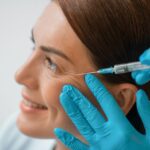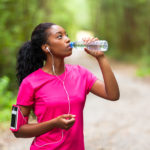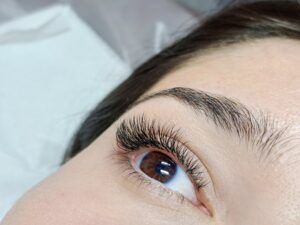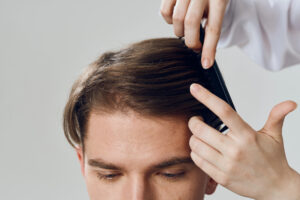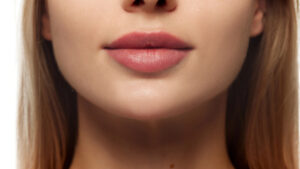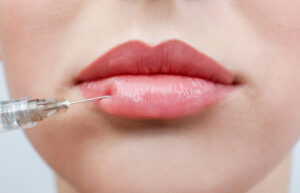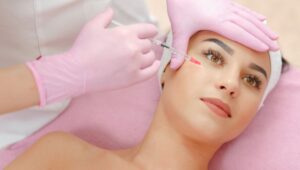If you have ever wondered, “Can too much salt affect the results from botox and fillers?”, then this is the detailed investigation you need. In this comprehensive deep dive, we aim to deliver the most important insights about lip fillers, botox injections, and how what you eat — particularly your salt intake — can play a critical role in your filler treatment.
Can Salt Intake Affect the Results of Dermal Filler and Botox Injections?
Understanding the connection between your diet and the success of cosmetics injectable treatments like dermal filler and botox is key to managing outcomes. And yes, salt could play a significant role in this nexus.
The Influence of Salt on Filler Injection Effectiveness
Salt, a common dietary constituent, has the ability to retain water in the body. This not only can lead to bloating, but can potentially impact the effectiveness of your dermal filler or filler injection around the eyes. This happens because water retention can cause swelling at the injection site, potentially distorting the filler’s intended effect.
Botox and Salt Consumption: What’s the Connection?
Similar to fillers, Botox could also be affected by excessive salt. Salt’s tendency to cause water retention can lead to swelling, potentially altering the smooth look Botox is intended to provide around the eyes or other treated areas.
Understanding Salt’s Role in Injectable Cosmetic Treatments
Balance is key. While some salt in the diet is necessary for body function, excessive salt can compromise the best results from your botox injections. Therefore, it’s essential to communicate with your injector about your dietary habits and treatment plan.
How To Reduce Swelling After Filler or Botox Injection?
Swelling and bruising are common after any injection, including aesthetics ones like filler and botox. Let’s explore some top tips to reduce swelling after treatment.
Managing Bruising and Swelling After Filler and Botox Injections
Firstly, always drink plenty of water before your treatment and avoid alcohol, aspirin, or ibuprofen, all of which can thin the blood, increase the risk of bruising, and exacerbate swelling. Applying a cold compress to the treatment area can also help reduce swelling. Arnica, a herbal remedy, has also been reported to help manage bruising and swelling.
Should You Avoid Salt to Reduce Swelling Following Filler and Botox Injections?
As previously mentioned, salt can lead to water retention and cause swelling, hence, it could be best to avoid excessive salt at least 24 hours before and 24 hours after treatment.
Recommended Care After Undergoing Injectable Cosmetics
Along with monitoring salt intake, it’s advisable to avoid strenuous exercise (which can increase blood flow to the treated area and cause swelling). Always follow your provider’s specific care instruction post-treatment for optimal results therefore it’s best to schedule your dermal filler or botox appointments appropriately.
Does Consuming Salt Increase the Risk of Bruising from Filler and Botox Injections?
In some instances, your salt intake may play a role in post-treatment bruising, although other factors also contribute.
Factors Contributing to Bruising After Cosmetic Injections
Besides salt, consuming alcohol, aspirin, or ibuprofen can increase the risk of bruising after cosmetic injections. These substances thin the blood, increasing the likelihood of bruising at the injection site.
Can Diet, Including Salt Intake, Influence Bruising Risk?
While further research is needed, anecdotal evidence hints that excessive salt could potentially exacerbate bruising after botox or lip fillers.
How to Minimize the Possibility of Bruising from Botox and Lip Fillers
Avoiding the aforementioned substances, applying a cold compress before and after treatment, and ensuring to stay well-hydrated can help minimize the risk of bruising.
Can Salt Intake Affect the Lifespan of Lip Fillers?
When it comes to lip fillers, the goal is often for them to last as long as possible. But does your diet, including salt intake, affect that lifespan?
Factors Affecting the Lifespan of Lip Fillers
The durability of lip fillers such as Juvederm, a hyaluronic acid-based filler, can be influenced by several factors. These vary from person to person and include metabolic rate, the area treated, the product used, and your lifestyle. Whether salt specifically affects the lifespan of lip fillers still requires more study.
Does Your Diet Affect the Durability of Lip Fillers?
While research on the impact of diet, including salt intake, on the lifespan of lip fillers isn’t conclusive, maintaining healthy lifestyle habits is always beneficial. This includes staying hydrated, using lip balm, and having a balanced diet.
Why Understanding Your Diet Including Salt Intake Can Improve Your Lip Filling Experience
A healthy diet not only improves your overall well-being, but may also enhance and prolong the results of your lip filler treatment. Understand your dietary choices and how it could impact the outcome is an aspect of the procedure that shouldn’t be overlooked.
Should You Avoid Certain Foods or Drinks Like Salt or Alcohol Before a Filler Injection?
What you consume in the days leading up to your dermal filler or Botox injections can have a significant impact on both the treatment itself and the recovery process.
Preparing for Your Dermal Filler or Botox Injection: Diet Considerations
For at least 24 hours prior to treatment, you should avoid any substances that can exacerbate swelling or bruising. This not only includes alcohol, aspirin, or ibuprofen, but also includes foods with high sodium content.
Top Tips for Pre-Treatment Care: Can Drinking Alcohol, Taking Aspirin, or Consuming High Salt Foods Impact the Results?
Indeed, these factors can undermine your results. Best practice would be to limit these at least 24 hours before your treatment, during the day of the appointment, and 24 hours after. Always follow your injector’s advice for best results.
What to Avoid Before Your Filler Injections Appointment?
Aside from avoiding substances that potentially cause more bruising and swelling, avoiding excessive sun exposure, stress, and lack of sleep days prior to treatment are also crucial. Remember, the best outcomes are a result of both the quality of the treatment and how well you prepare and care for yourself before and after.
*Information in this article is not medical advice and may not be factually accurate. It is intended for entertainment purposes only. Consult with a physician before attempting any tips in this blog post and to get the most up to date factual data about any procedure or treatment.


